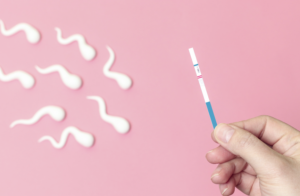So many things to consider, take away the stress by addressing the basics first
There are many uncontrollable factors in fertility – your genetics, your age, an unpredictable cycle, are just a few to mention.
Giving your body the best possible foods and supplements is an easy way to set good terrain and foundation and remain ahead. Working with a professional team of NHS doctors, geneticists and clinical nutritionists to choose the right balance of vitamins for you and personalising your journey can help improve your chances of a healthy pregnancy.
Mind your supplements
You can buy most supplements at a health food shop, however without proper professional guidance they can negatively impact with medications that you are taking. The quality aspect is also vital, since some don’t contain enough of the nutrients required to make a real difference.
Without testing you can end up taking too much of one thing, and not enough of another, leading to imbalances. The quality of what you take is crucial as some contain fillers and other compounds that should be avoided.
Top Tip
ScreenMe your supplements — all supplements are not equal but those sold in the ScreenMe Shop are carefully considered and checked for quality and content by our scientists before being recommended.
Here are 9 of the most efficient supplements to increase male fertility:
1. B12:
In 2017 a study from Jordan University of Science and Technology showed that B12 has a direct impact on the quality of sperm count and sperm motility. Both food consumption and supplementation have shown to help. Where a vegan or vegetarian way of eating is being followed, supplements are highly advised.
B12 your foods to optimum:
B12 is mainly found in dairy and animal derived foods.
Also if you want to now more specifically about vitamin B12 the post below can help you.

Top Tip:
Ensure your digestive system is in tip top condition so that absorption is uncompromised. Your ScreenMe gut microbiome testing can help you to figure out your gut condition.
2. Vitamin C zing
Vitamin C protects can reduce cell damage to body and so sperm from oxidative damage. It also helps to increase iron absorption. Multiple studies around 2016 found that taking vitamin C with vitamin E improved the number of sperms, sperm mobility, and sometimes quality of sperm in men.
C your foods:
Fruits – papaya, strawberries, oranges, kiwifruit
Veggies – bell peppers, broccoli, Brussels sprouts, cauliflower, and kale.
Top Tip:
Vitamin C is sensitive to cooking and processing get a good amount from eating foods raw.
3. CoQ10 yourself
The body produces this on its own, but production reduces with age. The active form (ubiquinone) is an antioxidant that protects sperm cells from damage protecting them and helping them in increasing motility. Added benefits show in a study in 2018 found that supplementing with ubiquinone prior to IVF improved ovary response.
CoQ10 to your foods:
Meat and meat products – beef, organ meats, eggs.
Fish marinated herring, rainbow trout, salmon.
Fruits and veg – strawberries and oranges, raw broccoli and, plus.
Nuts, grains, and seeds – whole grains that still contain the germ, peanuts, pistachios, sesame seeds.
Top Tip:
The multi vitamin on the ScreenMe Shop has CoQ10 as a bonus to all the other nutrients, vitamins, and minerals.
4. Vitamin D sunshine
Vitamin D is essential for human health and contributes to reproduction. Some research shows that deficiency may be associated with infertility in both men and women. so, it’s important to be tested for vitamin D deficiency.
D double your foods
oily fish – salmon, sardines, pilchards, trout, herring, kippers and eel
egg yolk, meat, offal, and milk contain small amounts, but this can vary seasonally.
Also if you want to now more specificly about vitamin D the post below can help you

Top Tip:
When the sun is out, 15 minutes on your forearms and legs can synthesise naturally in your body and give what you need. If you live somewhere with little/no sun, test your levels and take adequate supplementation in a professionally recommended supplement.
Fact: Vitamin D is a fat-soluble vitamin and so needs a little fat to absorb, in its supplement form D3 is the best, with K2 to help it absorb.
5. Folate (B9) not too late
Latest research suggests that folate (B9) can help reduce the instance of sperm with too few or too many chromosomes. When fertilising an egg, sperm with imbalanced chromosomes could lead to birth defects such as Down syndrome, or even increase likelihood of miscarriage.
Folate your foods higher
Lentils, asparagus, spinach, collard greens
pinto, navy, kidney, black and garbanzo beans
Top Tip:
1 cup per day of the foods above provides 50-90% of your daily needs.
6. L-Carnitine acid for sperm
This amino acid is a needed for sperm cells to function normally. Research published in Fertility and Sterility and the International Journal of Andrology shows that L-Carnitine can help sperm motility in men with low sperm quality and help increase sperm count. Carnitine and CoQ10 have been shown to work together.
Get high with amino acid rich foods
nuts, seeds.
garlic, mustard greens, parsley
vegetables – artichokes, asparagus, beet greens, broccoli, Brussel sprouts, collard greens, okra








